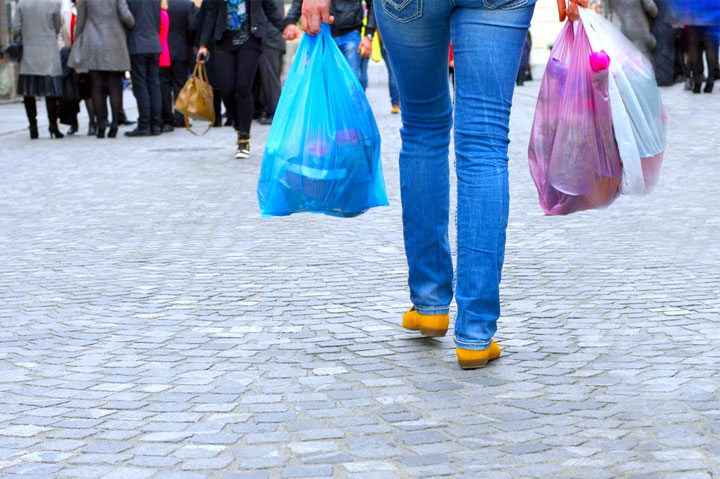News September 29, 2021
Washington State, Baltimore Enact Plastic Bag Bans
Prohibitions on single-use plastic products like bags could help promo distributors sell alternatives like totes.
After delays due to the COVID-19 pandemic, governments from coast to coast are resuming their fight against plastic. Starting Oct. 1, Washington state and Baltimore will begin their respective bans on single-use plastic bags, as will Philadelphia.

The bans can potentially create opportunities to sell more branded reusable alternatives like tote bags. That could benefit promotional products distributors. Still, things can be more complicated than that, as costs may go up for retailers, which could result in them having less money for marketing purposes.
In addition to the prohibition in Washington, there will be a minimum cost of 8 cents for alternatives, such as large paper bags and thicker, reusable plastic bags, The News Tribune reported. That fee supplants Seattle’s current 5-cent minimum fee.
Reusable plastic bags must be at least 2.25 millimeters thick and manufactured with at least 20% post-consumer recycled content. That requirement rises to 40% by July 2022. The paper bags already must be produced from at least 40% recycled content. Plastic produce bags typically used to cover meat packaging and small paper bags are exempt from the fee.
Plastic bags are a major contaminant in Washington. Washington's Plastic Bag Ban will reduce pollution by prohibiting single-use plastic carryout bags and charging a fee for acceptable bags in business establishments beginning Friday, Oct. 1. https://t.co/FI14eKhwTv pic.twitter.com/qBevPExuo6
— City of Spokane (@SpokaneCity) September 24, 2021
Meanwhile, Baltimore businesses must charge a minimum of 5 cents for each paper or compostable bag distributed at check out, of which 1 cent must be remitted to the city, according to the Baltimore Office of Sustainability. Dry-cleaner bags, newspaper bags, bags provided by pharmacists to contain prescription drugs and bags intended for fresh meat and produce are all exempt.
Washingtonians use more than 2 billion single-use plastic bags each year, according to Seattle Public Utilities, with many ending up in Puget Sound and polluting the environment. In Baltimore, the trash interceptor company, Mr. Trash Wheel, has collected more than 830,000 plastic bags from the Baltimore Harbor since 2014, WBAL TV reported.
On October 1, Baltimore City's Plastic Bag Ban will go into effect. Plastic bags will be banned at the point of sale, and all other bags will cost 5 cents.
— Comptroller Bill (@BillforBmore) September 21, 2021
Learn more, talk to your neighbors, & make a plan! More info from our friends at sustainability--https://t.co/QpqudM2Xzo pic.twitter.com/DtVeduqcIL
The war on plastic has been going on for years. There are over 1,000 plastic-reduction laws throughout the United States, according to Surfrider Foundation, a nonprofit that works to protect and preserve the world's oceans and beaches. Ban proponents say the pollution spoils natural habitat and poses a danger to wildlife, which can choke on or become caught in the disposables.
In 1950, the world’s population of 2.5 billion produced 1.5 million tons of plastic, according to Surfers Against Sewage, a marine conservation charity based in the United Kingdom. In 2016, a global population of more than 7 billion people produced more than 320 million tons of plastic. The 2016 tally is set to double by 2034. Every day, approximately 8 million pieces of plastic pollution find their way into oceans, according to Surfers Against Sewage.
